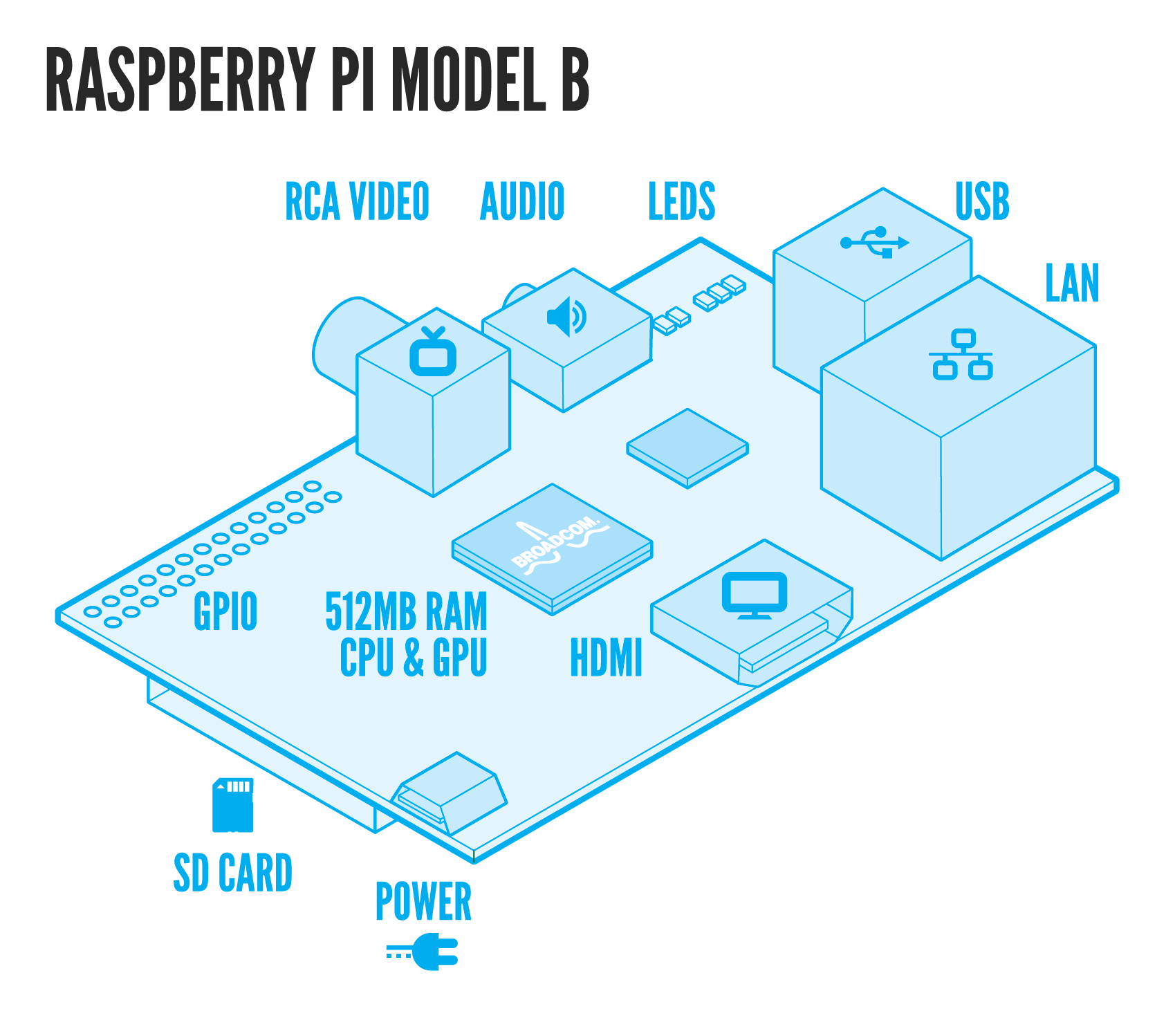The Raspberry Pi is almost small enough to fit in an Altoid’s mint tin, and works with most TV sets or monitors, provided they support HDMI. Why HDMI? Because the Raspberry Pi is capable of Blu-Ray quality playback. Audio via HDMI is supported, as well as a native 3.5mm Audio jack. This comes in handy with the RCA Video port, for use with older television sets.
There are two USB ports, for connecting mice, keyboards, or USB hubs for multiple devices per port. It is also important to point out that the Raspberry Pi cannot boot without a prepared SD card. You can purchase your own SD card and format it properly, or purchase one that has this already done for you. An external USB drive can be used, but the SD card must be present for the initial boot sequence. The operating system is a form of Debian, affectionately known as “Raspbian”, tailored for use with this device.
The operating system and other software are constantly being updated by the developers, making it even more user friendly. However, this is a device with a bit of a learning curve, and many features are not taken for granted as they are in Windows or Mac operating systems. This lends itself well to a learning environment where users can personalize their experience. But, the most astounding feature? The base retail is $35.00.
[Ed - the Raspberry Pi is not a new system. People have been talking about them for some time and they are shipping to the world as of this writing still the do represent one possible future for computing. This is the reduction of the home computer to a small, low-power system that relies on cloud services to do everything. It is one method that has been suggested to put a "computer" in every home around the globe (not necessaily the Raspberry Pi, but a small ARM based system). We expect to see this market grow and to even get smaller as devices like FXI's Cotton Candy become faster and more affordable]
What do you think of the emerging ARM desktop market?



